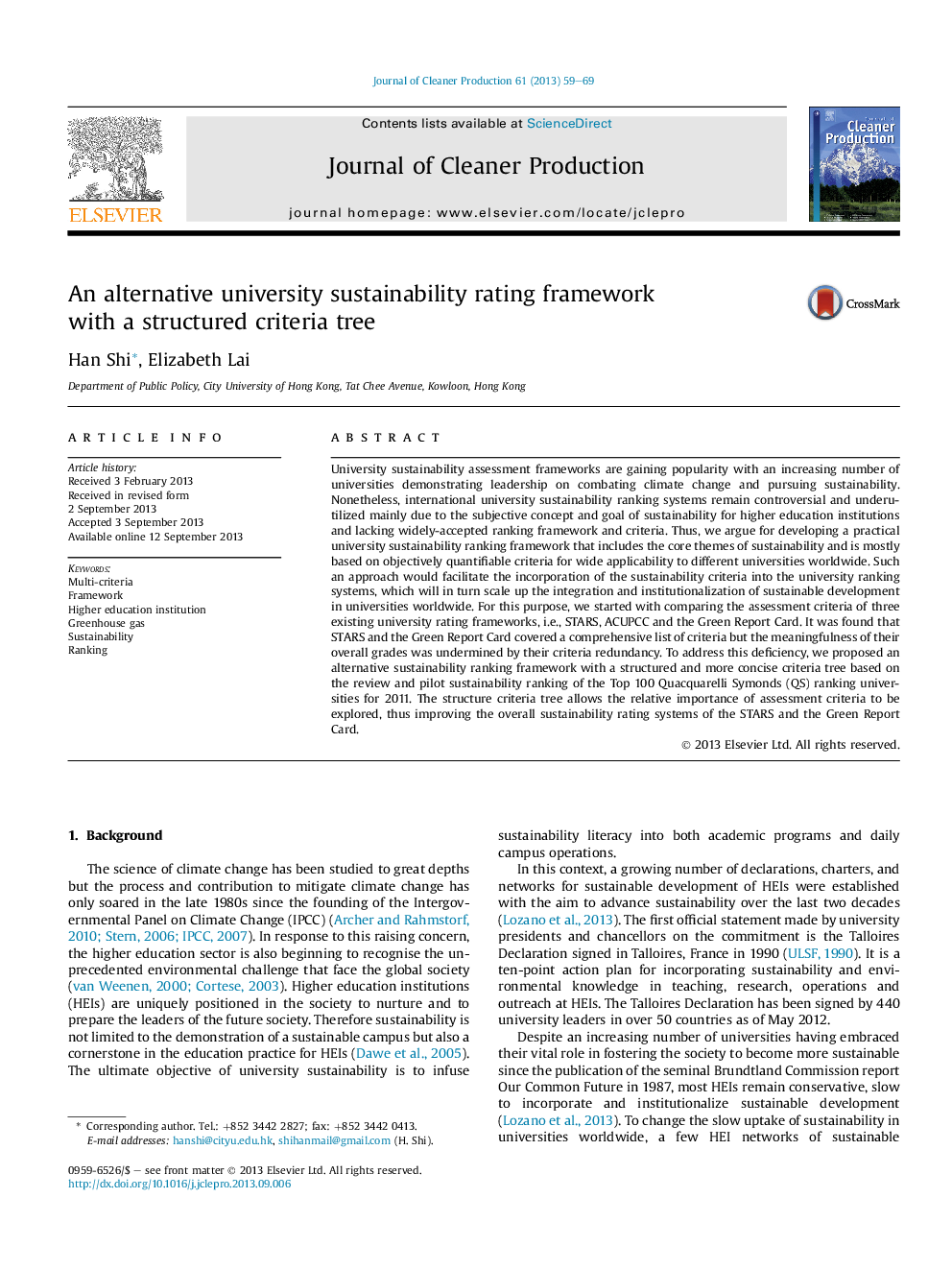| Article ID | Journal | Published Year | Pages | File Type |
|---|---|---|---|---|
| 1745121 | Journal of Cleaner Production | 2013 | 11 Pages |
University sustainability assessment frameworks are gaining popularity with an increasing number of universities demonstrating leadership on combating climate change and pursuing sustainability. Nonetheless, international university sustainability ranking systems remain controversial and underutilized mainly due to the subjective concept and goal of sustainability for higher education institutions and lacking widely-accepted ranking framework and criteria. Thus, we argue for developing a practical university sustainability ranking framework that includes the core themes of sustainability and is mostly based on objectively quantifiable criteria for wide applicability to different universities worldwide. Such an approach would facilitate the incorporation of the sustainability criteria into the university ranking systems, which will in turn scale up the integration and institutionalization of sustainable development in universities worldwide. For this purpose, we started with comparing the assessment criteria of three existing university rating frameworks, i.e., STARS, ACUPCC and the Green Report Card. It was found that STARS and the Green Report Card covered a comprehensive list of criteria but the meaningfulness of their overall grades was undermined by their criteria redundancy. To address this deficiency, we proposed an alternative sustainability ranking framework with a structured and more concise criteria tree based on the review and pilot sustainability ranking of the Top 100 Quacquarelli Symonds (QS) ranking universities for 2011. The structure criteria tree allows the relative importance of assessment criteria to be explored, thus improving the overall sustainability rating systems of the STARS and the Green Report Card.
